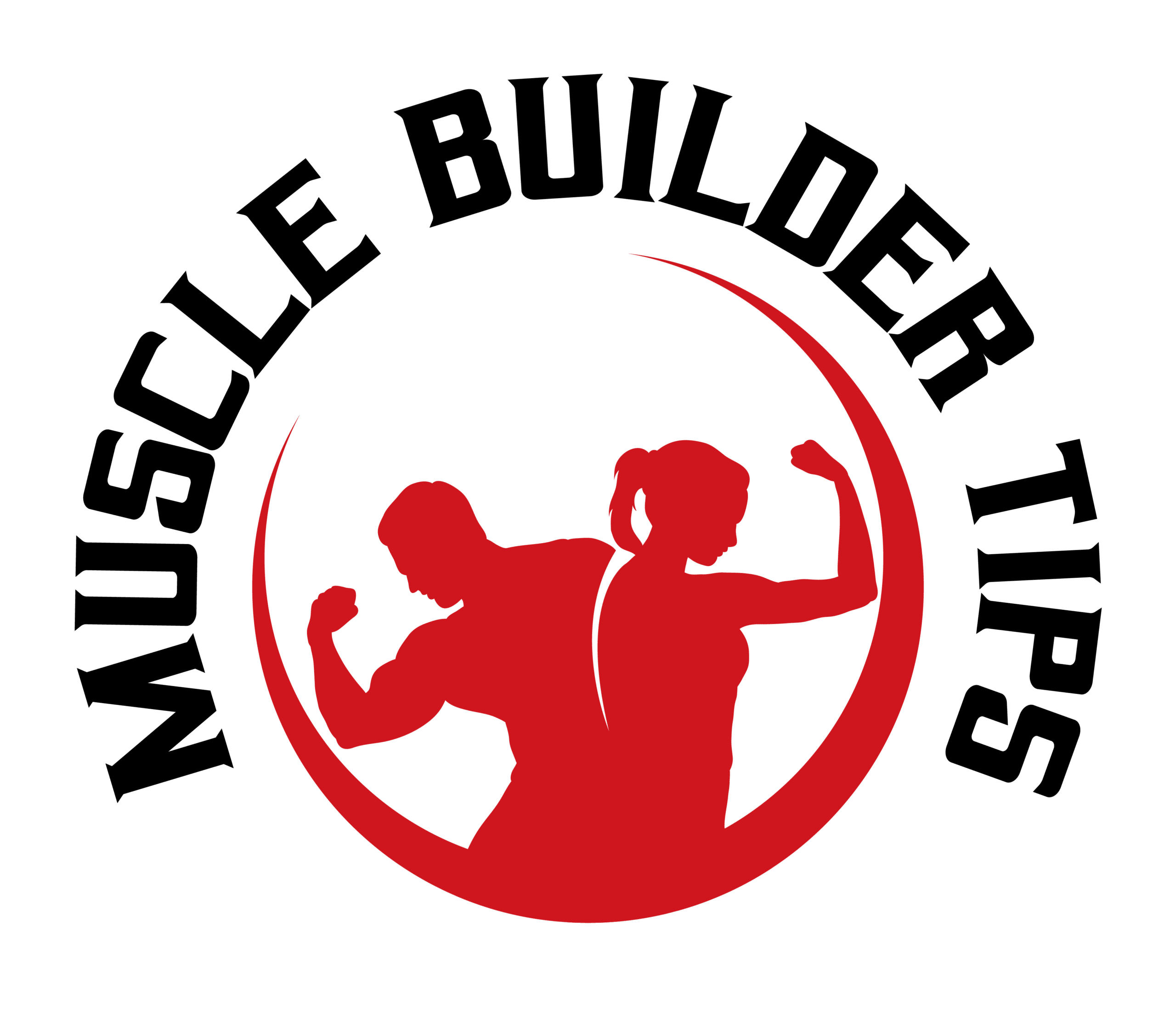
When you embark on your fitness journey, understanding the role of protein powder in building lean muscle is crucial. Protein is one of the three macronutrients essential for your body, alongside carbohydrates and fats. It plays a vital role in muscle repair and growth, especially after intense workouts.
When you engage in resistance training or any form of exercise that challenges your muscles, tiny tears occur in the muscle fibers. Your body then requires protein to repair these tears, leading to muscle growth and increased strength. This is where protein powder comes into play, serving as a convenient and efficient source of high-quality protein.
Protein powder can be particularly beneficial for those who struggle to meet their protein needs through whole foods alone. Whether you’re a busy professional, a student, or someone who simply finds it challenging to prepare protein-rich meals consistently, protein powder offers a quick solution. By incorporating it into your diet, you can ensure that your body receives the necessary nutrients to support muscle recovery and growth.
However, it’s essential to understand that while protein powder can be a helpful supplement, it should not replace whole food sources of protein entirely. A balanced diet rich in various nutrients is key to achieving optimal health and fitness.
Key Takeaways
- Protein powder is a convenient way to increase protein intake for lean muscle growth and recovery.
- Whey, casein, soy, and pea protein are common types of protein powder for lean muscle.
- Consider factors such as dietary restrictions, taste preferences, and digestion when choosing the right protein powder.
- Benefits of using protein powder for lean muscle include muscle repair, growth, and satiety.
- Incorporate protein powder into your diet by adding it to smoothies, oatmeal, or baking recipes for a protein boost.
Types of Protein Powder for Lean Muscle
As you explore the world of protein powders, you’ll discover a variety of options tailored to different dietary preferences and fitness goals. The most common types include whey, casein, soy, pea, and hemp protein powders. Whey protein is derived from milk and is known for its rapid absorption rate, making it an excellent choice for post-workout recovery.
It contains all nine essential amino acids, which are crucial for muscle repair and growth. If you’re looking for a quick protein boost after your workouts, whey protein might be the ideal option for you. On the other hand, if you prefer a plant-based option, soy protein is a popular choice among vegetarians and vegans.
It also contains all essential amino acids and has been shown to support muscle growth effectively. Pea protein is another plant-based alternative that is hypoallergenic and easily digestible, making it suitable for those with dietary restrictions. Hemp protein, while lower in protein content compared to other options, offers healthy fats and fiber, contributing to overall nutrition.
Understanding these different types of protein powders will help you make an informed decision based on your dietary needs and fitness goals.
Choosing the Right Protein Powder for Lean Muscle
Selecting the right protein powder can feel overwhelming given the plethora of options available on the market. To make an informed choice, consider your dietary preferences, fitness goals, and any allergies or intolerances you may have. If you’re lactose intolerant or have a dairy allergy, opting for plant-based proteins like pea or soy may be more suitable for you.
Conversely, if you have no dietary restrictions and are looking for a fast-absorbing option, whey protein could be your best bet. Additionally, pay attention to the ingredient list and nutritional profile of the protein powder you’re considering. Look for products with minimal additives and fillers; ideally, they should contain high-quality protein sources without excessive sugars or artificial ingredients.
You might also want to consider the flavor and texture of the powder since you’ll likely be consuming it regularly. Trying out sample sizes or smaller containers can help you find a product that suits your taste preferences before committing to a larger purchase.
Benefits of Using Protein Powder for Lean Muscle
Incorporating protein powder into your diet can offer numerous benefits beyond just supporting muscle growth. One significant advantage is its convenience; it allows you to easily increase your protein intake without having to prepare elaborate meals. This can be particularly beneficial for those with busy lifestyles who may struggle to find time to cook or eat enough protein-rich foods throughout the day.
Moreover, using protein powder can aid in weight management by promoting satiety. Protein is known to keep you feeling fuller for longer periods compared to carbohydrates or fats. By including a protein shake as part of your meals or snacks, you may find it easier to control your appetite and reduce cravings for unhealthy snacks.
This can ultimately support your overall fitness goals, whether you’re aiming to build lean muscle or lose body fat.
How to Incorporate Protein Powder into Your Diet for Lean Muscle
Integrating protein powder into your daily routine can be both simple and enjoyable. One of the most popular methods is to mix it into smoothies or shakes. You can blend it with fruits like bananas or berries, add some spinach or kale for extra nutrients, and even include nut butter or oats for added texture and flavor.
This not only enhances the taste but also creates a well-rounded meal that provides essential vitamins and minerals alongside your protein intake. Another effective way to use protein powder is by adding it to your favorite recipes. You can incorporate it into baked goods like pancakes, muffins, or energy bars for an extra protein boost without compromising taste.
Additionally, consider mixing it into yogurt or oatmeal for a nutritious breakfast option. The versatility of protein powder allows you to experiment with various dishes while ensuring you meet your daily protein requirements.
Tips for Buying Quality Protein Powder for Lean Muscle
When shopping for protein powder, quality should be at the forefront of your decision-making process. Start by looking for products that have undergone third-party testing to ensure they meet safety and quality standards. Certifications from organizations like NSF International or Informed-Sport can provide peace of mind regarding the purity and potency of the product.
Furthermore, consider the source of the protein in the powder. High-quality whey protein isolate or plant-based proteins derived from reputable sources are generally more effective than lower-quality alternatives. Reading customer reviews can also provide insight into the product’s effectiveness and taste.
Lastly, don’t forget to compare prices; while higher-quality products may come at a premium, investing in a good protein powder can yield better results in your fitness journey.
Potential Side Effects and Risks of Protein Powder for Lean Muscle
While protein powder can be beneficial for many individuals, it’s essential to be aware of potential side effects and risks associated with its use. Some people may experience digestive issues such as bloating, gas, or diarrhea when consuming certain types of protein powders, particularly those containing lactose or artificial sweeteners. If you notice any discomfort after using a specific product, consider switching to a different type or brand that may be easier on your digestive system.
Additionally, excessive protein intake can lead to health concerns over time. While it’s important to consume enough protein to support muscle growth and recovery, overdoing it can strain your kidneys and lead to dehydration or nutrient imbalances. It’s crucial to strike a balance between whole food sources of protein and supplements like protein powder.
Consulting with a healthcare professional or registered dietitian can help you determine the right amount of protein for your individual needs.
Making the Best Choice for Protein Powder for Lean Muscle
In conclusion, choosing the right protein powder can significantly impact your journey toward building lean muscle and achieving your fitness goals. By understanding the different types available and their respective benefits, you can make an informed decision that aligns with your dietary preferences and lifestyle. Remember that while protein powder is a convenient supplement, it should complement a balanced diet rich in whole foods.
As you incorporate protein powder into your routine, focus on quality products that meet safety standards and suit your taste preferences. Be mindful of potential side effects and ensure you’re consuming an appropriate amount of protein based on your activity level and goals. With careful consideration and planning, you can harness the power of protein powder as an effective tool in your quest for lean muscle development and overall health.
If you are looking to buy protein powder for lean muscle, you may also be interested in checking out this article on muscle gain diet plan. This article provides valuable information on how to structure your diet to support muscle growth and achieve your fitness goals. By combining the right protein powder with a well-balanced diet, you can optimize your muscle-building efforts and see better results in the gym.
FAQs
What is protein powder?
Protein powder is a dietary supplement that is typically made from whey, casein, soy, or egg proteins. It is used to increase protein intake, which is essential for muscle growth and repair.
How does protein powder help in building lean muscle?
Protein powder provides the body with the necessary amino acids to support muscle growth and repair. It can help individuals meet their daily protein requirements, especially for those who are physically active and looking to build lean muscle.
What are the different types of protein powder available?
The most common types of protein powder include whey protein, casein protein, soy protein, and egg protein. Each type has its own unique benefits and is suitable for different dietary preferences.
How should protein powder be consumed for best results?
Protein powder can be consumed by mixing it with water, milk, or blended into smoothies. It is best to consume protein powder within 30 minutes of completing a workout to support muscle recovery and growth.
Are there any side effects of consuming protein powder?
When consumed in moderation, protein powder is generally safe for most people. However, excessive consumption may lead to digestive issues such as bloating and discomfort. It is important to follow the recommended serving sizes and consult a healthcare professional if you have any concerns.
